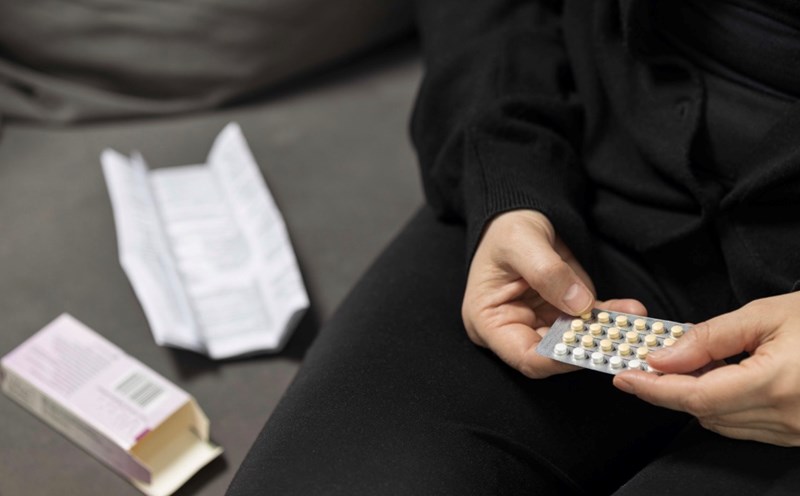Nutritious diet
Providing your body with the right nutrients is important. Omega-3 fatty acids, found in foods like salmon, walnuts, and flaxseeds, are particularly beneficial. These healthy fats can reduce inflammation and aid hormone production.
Additionally, cruciferous vegetables like broccoli, Brussels sprouts, kale and fiber-rich foods like avocados and chia seeds also help eliminate toxins and improve hormone balance.
Provide enough water for the body
Staying hydrated can help your body process and eliminate excess hormones, especially estrogen, which can cause bloating and mood swings during your period. Drink at least eight glasses of water a day to help your body function optimally.
Stay away from caffeine and alcohol
Caffeine stimulates cortisol, a hormone that causes stress, anxiety, and irritability. Similarly, alcohol interferes with your body's detoxification process and disrupts your sleep.
Sunlight is very beneficial
Vitamin D is essential for strong bones and joints, and is also an important nutrient for hormone regulation. Vitamin D deficiency can lead to hormonal imbalances in women, especially those with polycystic ovary syndrome (PCOS).
You should spend 15-30 minutes outdoors every day to expose your body to natural sunlight. The absorbed vitamin D will help regulate estrogen and progesterone.
Healthy exercise
Physical activity helps reduce cortisol levels, regulate insulin and stimulate the production of endorphins - a hormone that creates a feeling of well-being.
According to the American Heart Association, you should get at least 15 minutes of moderate aerobic exercise or 75 minutes of vigorous aerobic exercise each week. Regular physical activity can improve estrogen metabolism and help prevent hormonal disorders in the long term.
Reduce stress levels
To manage stress, practice techniques such as meditation, deep breathing, or simple hobbies.
A study published in the Journal of Clinical Psychology found that people who regularly practiced meditation had significantly lower cortisol levels than those who did not.
Get 7-8 hours of sleep every day
The body does most of its hormone regulation during sleep, and not getting enough rest can disrupt this process. Lack of sleep increases cortisol levels and disrupts the production of leptin and ghrelin.
Medicine
There are a number of medications that can help balance hormones and relieve other symptoms during menstruation. However, consult a healthcare professional or doctor before starting any medication and avoid self-medication.











